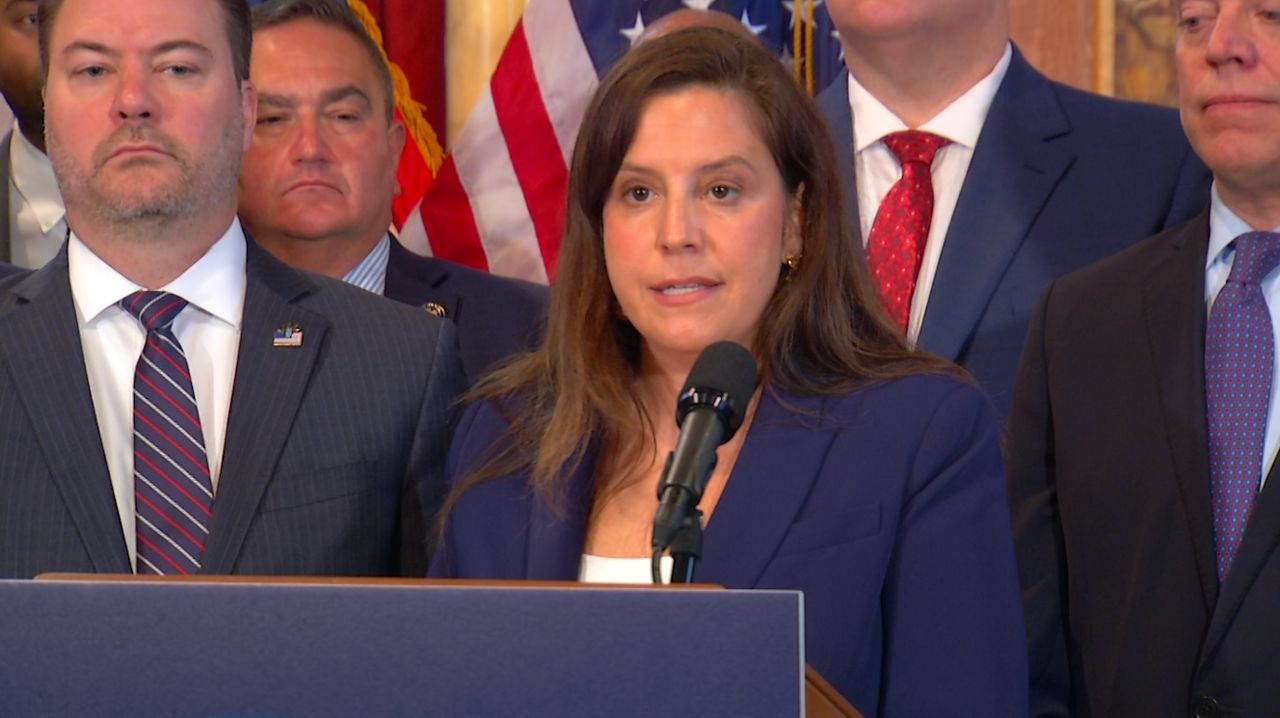Traveling along the Adirondacks’ Fulton Chain, it becomes clear that a number of residents want nothing to do with a proposed lithium battery farm in Raquette Lake.
“It hasn't been around long enough to see what will go wrong,” Raquette Lake part-time resident Monique Masse said.
Frustrated with the overall idea of a lithium battery farm, she formed a group of people who agree known as Protect Raquette Lake.
What You Need To Know
- Long Lake put in place a year-long moratorium on a lithium battery storage farm and projects like it
- National Grid says the power could help alleviate an estimated eight power outages a year
- Residents say they want to see green energy come, but not something with so many unknowns that could put the forests and lakes in jeopardy
“I think the power of voices coming together can be very strong,” she said.
Those voices came together nearby at a board meeting in the town of Long Lake, with members of the group joining forces with other residents to push for a yearlong moratorium on the project and ones like it.
The other side of the story is one that we experienced firsthand. National Grid, who is behind this proposal, says this region typically faces anywhere from six to nine power outages a year. On the day Spectrum News 1 was on hand, the region from Long Lake to Old Forge went dark.
Because of that, National Grid said in a statement it “…remains committed to finding the right solution for reliability issues in Racket Lake and surrounding communities.”
However, members of Protect Raquette Lake say in addition to not being equipped to handle an emergency such as a fire, the community only has a handful of volunteer firefighters, and Masse says they are aging. She says losing power is just part of what life is like living in the wilderness.
“It's beautiful. You come here, you can escape,” she said as a reminder that people live here for a reason.
While she admits that it's not the perfect green technology, she said most people — and businesses — in the region already have what it takes to beat an outage.
“Many of the residents here already have generators. They aren't asking for this. They don't need this. Hand out generators,” she said about residents and businesses.
At least for now, Masse said. In time, who knows what can be learned about the battery tech and its troubleshooting?
Something her and National Grid can agree on is that they both look forward to Gov. Kathy Hochul's new Inter-Agency Fire Safety Working Group and its findings.
Masse and other residents still have a number of questions they want answered: What is the plan for unused power in the region? How would major temperature changes affect the batteries? Why did National Grid and Rev Renewables decide on a hamlet that is not protected by the Adirondack Protection Agency?
National Grid did not directly answer any of those questions, referring to a statement provided.
Rev Renewables issued a statement:
“Battery energy storage systems are proven to be dependable, safe and effective solutions to improve reliability and integrate clean energy into the electric grid. REV Renewables is committed to cooperatively serving our partners, customers and the public with reliable, clean energy. We look forward to continuing our relationship with National Grid and to helping bring the best reliability solutions for the Adirondack region.”









_PKG_Funding_to_Fight_Antisemitism_CLEAN)